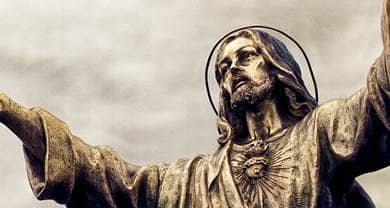- Trending:
- Pope Leo Xiv
- |
- Israel
- |
- Trump
- |
- Social Justice
- |
- Peace
- |
- Love

RELIGION LIBRARY
Lutheran
Community Organization
Like most Christians, Lutherans use the image found in Paul's First Letter to the Corinthians (12:12-31) of the church as the body of Christ. A body has many members, but remains one body. Each member must fulfill its role for the body to be healthy. This image works particularly well for Lutherans because of Luther's doctrine of the priesthood of all believers.
Lutherans have defined themselves doctrinally. Lutheranism originates in a debate with Catholicism about justification by faith. Some other Christian denominations have defined themselves by church polity. Congregationalists, for example, give each independent congregation a great deal of autonomy. Presbyterians, in contrast, have organized themselves on an elected pyramid model (representatives from each congregation represent the church at the regional synod, representatives from each synod represent the synod at a national general assembly).
Because Lutherans have defined themselves by doctrine rather than polity, there is a fair amount of diversity in the organization of the community. Luther was a conservative reformer who made no compromises on key shifts in theology, but moved slowly and with a great deal of flexibility in matters of ritual, aesthetics, and organization. This flexibility is evident in Lutheran polity. There are Lutheran churches organized on congregational and Presbyterian models. Some operate independently and give the individual congregation self-governing authority. Others associate with fellow Lutheran churches in a governing synod.
In European countries, Lutherans are led by bishops, as in the Roman Catholic Church. In Germany, Lutheranism is, along with Roman Catholicism, the official state religion. In Scandinavia it is the exclusive established religion. (It should be pointed out that in all these countries religious freedom is perhaps the most robust in the world.) But Luther did not set out to alter fundamentally the relationship of church and state as did some other reformers, notably Zwingli and Calvin. In non-European countries, Lutheranism is a voluntary religious organization (you must opt in, rather than being born in automatically). Even in these countries, elected leaders are usually called bishops.
In addition to local congregations, and regional and national churches, many Lutheran denominations belong to The Lutheran World Federation. The headquarters is in Geneva, Switzerland, to facilitate cooperation with the World Council of Churches. The Lutheran World Federation is governed by an Assembly that meets every six years. Between Assemblies it is governed by a Council that meets every 12 to 18 months. Lutherans in general have been enthusiastic participants in ecumenical dialogues.










